30 things learned in 30 years of cycling – No. 4

The Key to Success :
Why are there pockets of cycling talent throughout the country? What is it that those who win races, or who achieve incredible feats on a bicycle all have in common? There must be a simple answer to these questions, and there is.
Back in the late eighties, and throughout the nineties, you could fill an entire Irish National team from the Carrick on Suir training group. You had the World number one, National champions at every level and there was constantly new talent being developed. There were a number of families with siblings who competed side by side in the green Irish jersey. Riders from all over Ireland and beyond wanted to come to Carrick to train with the group.
What was it about Carrick on Suir that made this happen? Was it unfiltered water from the river suir? Was it the blossom off of some tree that the wind carried from the nearby Comeragh Mountains? Was it some special training regime which was guarded secretly?
It was none of the above.
I once asked Sean Kelly what did he think made him the World s number one cyclist for six years in a row, and one of the iconic legends of the sport. He paused and pondered. I expected some special type of training regime. I expected some special type of inate natural talent. He looked directly at me and said two words – HARD WORK.
One day we were looking through some photos and I asked Sean if he had fallen off after the photo below was taken.

Immediately, he replied with a definite ‘No’
He did not see a bike sliding away from him on greasy cobbles at the end of the Forest of Aarenberg as a problem. He knew that he would be able to handle it. Where did this confidence in his bike handling ability come from? Was it a God given natural talent or did it come from somewhere else. Think back to his answer about what was the key to his success.
Ever before Sean owned a racing bike, or before anyone in his family owned a racing bike, Sean and his brother Joe devised a way to entertain themselves for hours on end when the days work on the farm was done, or when their father was gone to the mart.
In a shed on the farm there was an big old High Nelly bicycle with no tyres, just rusty steel rims. A milk churn was placed in the middle of the concrete yard and a time trial course was marked out. Starting at a gate the rider had to pilot the steel rimmed bike with no tyres or brakes along the lumpy boreen out to the main road, then turn sharply and pedal hell for leather back into the yard around the milk churn and back to the start finish line. Hour after hour, day after day the constant practicing saw their times reduce and the number of times that they each fell of diminish.
Imagine how easy it must have felt to control a bike that was the right size with correctly inflated rubber tubular tyres, and brakes that actually worked all those years later, no matter what surface was faced.
One of the most naturally talented bike handlers of his generation was not just born with that talent. Hard work gave him that talent. Hours and hours, days and days, weeks and weeks, years and years of practice gave him that natural talent. To this day Kelly is still working on that bike handling ability, always playing around on his bike like a teenager.

Kelly was also one of the great tacticians of his generation. It almost seems as though he has a crystal ball predicting the outcome of races as he commentates for Eurosport. Where did this tactical awareness come from? Was is just something that he was born with? Or was it built up over time spent working hard at the business end of thousands of races at the very highest level? Could this have led to a subconscious knowledge of what could and most probably would happen in pretty much any given situation in a bike race?
Part of the reason why the likes of Kelly may never be seen again is because the modern generation of cyclist uses targeted specific physical training as the way to reach peak condition for their chosen events as opposed to the likes of Kelly who used racing as their best form of training. Not alone did these races build physical fitness, they also built up that inate tactical sense and awareness that no amount of powerpoint presentations or video analysis in a team bus could ever hope to replicate. Video analysis will never give you that subconscious understanding of what is going to happen.
Hard work and hour upon hour spent crafting your trade seems to be a larger factor in being perceived as naturally talented than anything that you are born with, and this has been proven scientifically. A study in Florida which began looking at violinists expanded out into athletes, golfers, tennis players and many others. A pattern emerged showing that those perceived as being the most naturally gifted were the ones who worked consistently the hardest. It was found that it took 10,000 hours to become a talented expert at the top of your chosen field. The most talented golfers win their first Major around the age of 25. This is 10 years after they begin to take the game seriously and all who hit that target had spent at least 20 hours per week from the age of 15 practicing their golf. 20 hours per week is 1000 hours per year, which over 10 years becomes 10,000 hours.
Cycling is much the same. I was recently looking back through a few old photos when I came across one of Sam Bennett from 11 years ago in an underage race. Now where is he over 10,000 hours of hard work later? Only with one the Worlds best Pro Tour teams where he is the team sprinter.
The true talent that makes someone successful may not be a natural gift for their chosen sport or endeavour but a passionate will to put in the incredible amount of hours of hard work necessary in order to succeed, and to keep going long after others have fallen by the wayside and given up.
This can be helped by living in an area where others are available to accompany you and guide you when you are putting in that work and this may be the key to the success of Carrick on Suir cyclists and also siblings who train and compete side by side.
Now you have the key – HARD WORK, the next step is up to you !
Barry

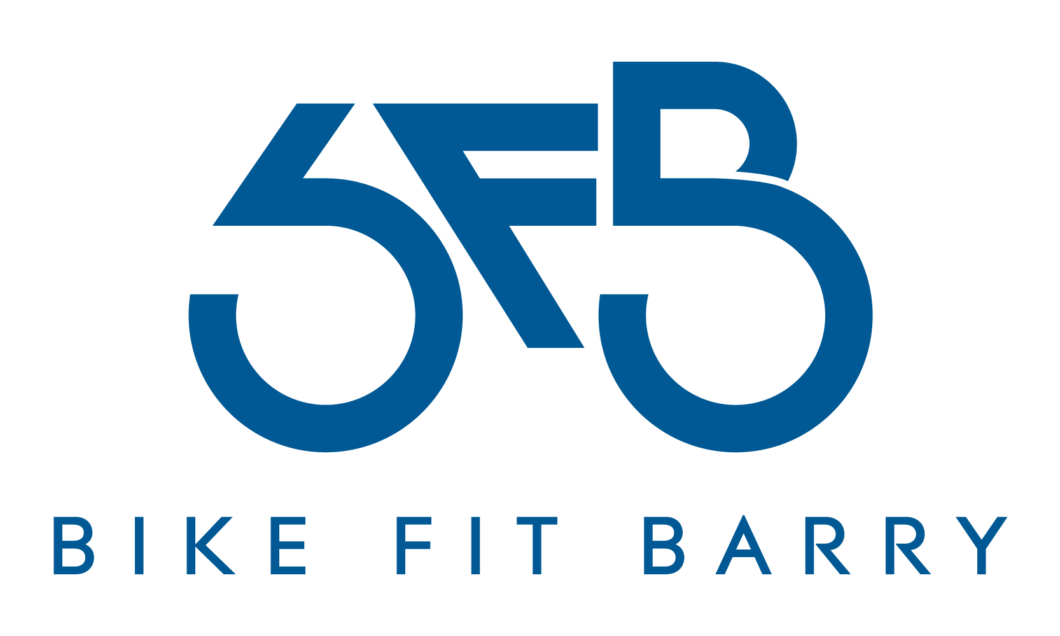
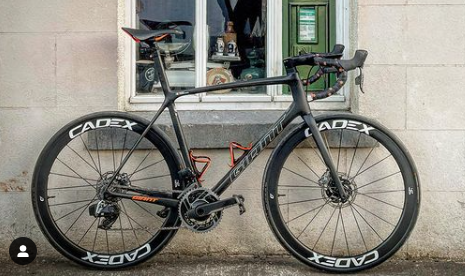

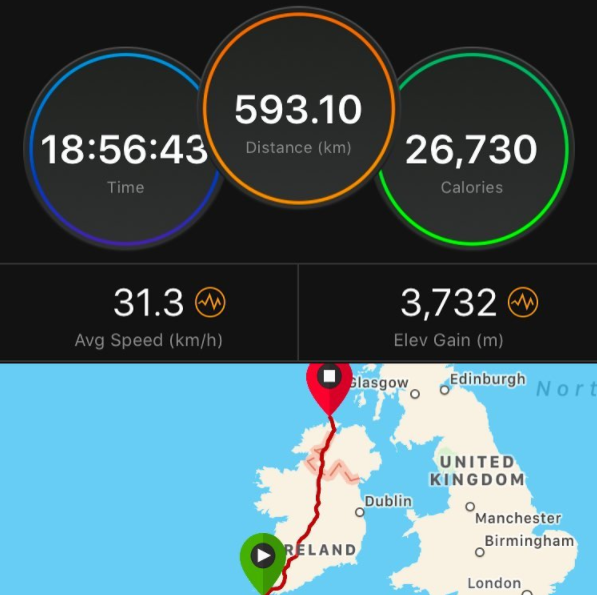
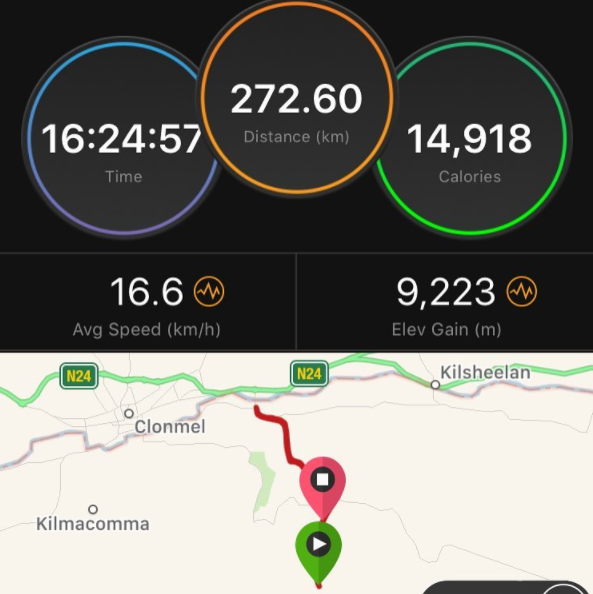
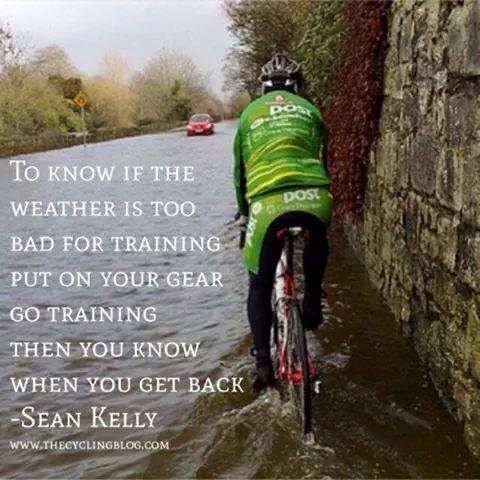
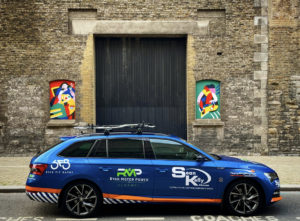
Leave a comment